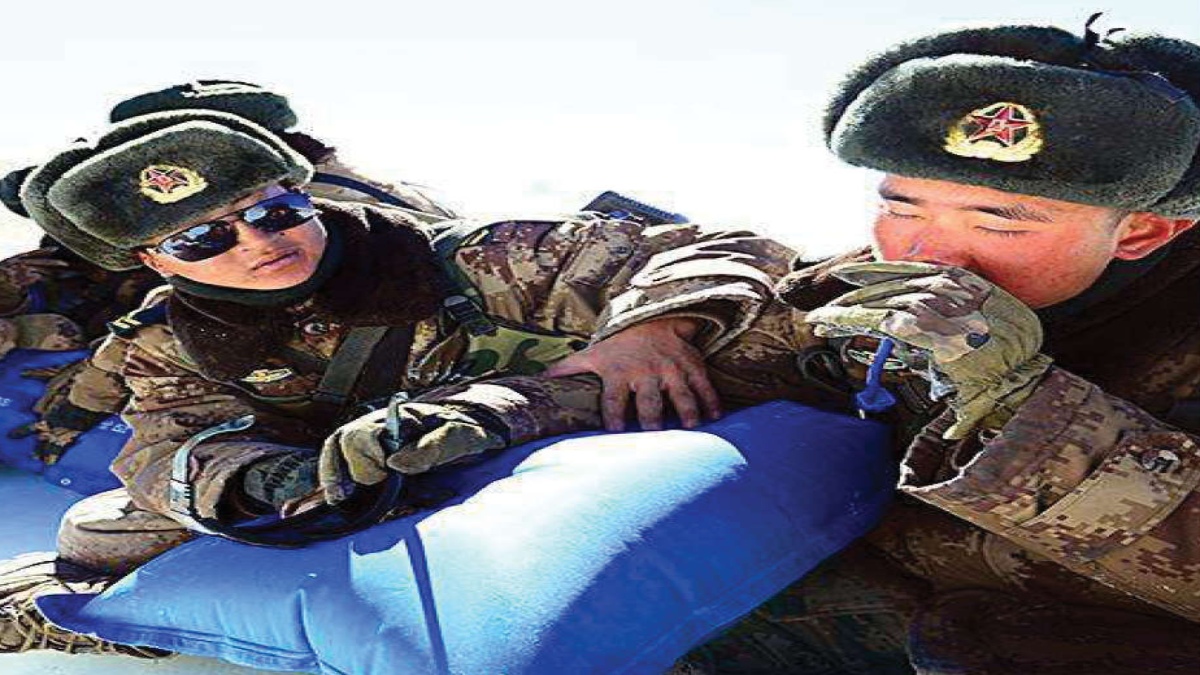In his acclaimed novel The Spy Who Came In from the Cold, John le Carre equates “cold” with unfamiliar. Though the story is about a British disinformation campaign against the East German intelligence service, one can’t help but notice two parallels with the ongoing Chinese propaganda arguably supporting PLA troops deployed in their Western Theatre Command. Firstly, the terrain is as unfamiliar to these soldiers as the climate is cold and unforgiving. Secondly and most importantly, the Chinese propaganda campaign, in its haste to showcase facilities and comfort provided to the troops in high altitude terrain, has sowed confusion amongst a number of its own experts and analysts. Many openly question the fitness levels of the soldiers deployed in Tibet and Xinjiang and whether they are suited for any form of warfare in the high reaches of the Himalayas.
They may not speak of it or are forced to lie to the media, but even the most disingenuous efforts by the Chinese propaganda machinery have failed to hide a simple fact: Chinese troops, the much-touted and mythicised Han warriors, are weak, brittle and not at all suited for high altitude warfare. A recent article by the South China Morning Post, known initially for its media ethics but now increasingly resembling Global Times, details the ‘tips’ provided to PLA troops deployed in the Tibetan plateau to cope with the peculiarities of being deployed at high altitudes. In the same article, an unnamed (as usual) officer has been quoted as saying that altitude sickness was a common problem affecting the troops. The reason given was the extended deployment timings. This leads to a few conclusions. The rotation schedules of the soldiers are not as perfect as Global Times or the innumerable media outlets make them out to be. Even the acclimatisation is not up to the mark as even with a sea-level baseline, an ordinary person gets acclimatised to the high altitudes progressively in a matter of 6-10 days. So much for claiming a science and technology edge over others.
Despite some social-media faux analysts crying hoarse about the PLA’s technological advantage over its adversaries, there seems to be a mismatch between what is advertised and the ground situation. PLA troops, the article continues, are also ignorant about medical protocols prevailing amongst a number of armies across the world. Expectedly, a considerable number of troops were found getting sick just at the start of exercises. This is a disciplinary issue as it also points to the non-existent command and control in the various PLA units and formations. Either the troops deliberately fake breathing problems or don’t follow advice from their doctors. Either way, it points to a failure within the army. A so-called ‘Multi-Point Plan’ has been referred to in the article which calls for drinking lots of water, using sanitising wipes after eating and going to the bathroom, avoiding overeating and breathing one hour of pure oxygen every day. Each of these issues, if analysed holistically and possibly backed up by data, points to a host of issues with the troops’ mental makeup, their sanitary habits and even their physiological challenges. The oft-quoted Song Zhongping, apparently a former PLA instructor, attributes these problems to the origins of most of the soldiers, who are mostly from the coastal areas or low lying lands in China’s interior. However, it is surprising that even after having been deployed in Tibet and Xinjiang for close to seven decades, the PLA has been unable to come up either with well-oiled procedures or SOPs to handle basic issues.
The buck does not stop here. The PLA has been allegedly looking at creating a Tibetan Special Unit, knowing very well that only the hardy Tibetan troops can be called upon to conduct operations at high altitude. It has also attempted to recruit the famed Gurkha warriors from Nepal but the offer was politely rebuffed last year. A country that cannot even count on its own citizens to execute its national security policy is claiming to be the next world power! The irony is tragic.
There have been several reports about how psychologists had to be called repeatedly to Tibet and Xinjiang to calm down the nerves of the PLA soldiers who fear death due to pulmonary oedema. Two soldiers were so disoriented that they wandered to the Indian side in the last six to eight months. There have been sightings of stretchers being carried out from the posts in Tibet by several independent observers. All this points to a problem in the command and control structure of the PLA as well as the rickety disciplinary model where enormous efforts have to be expended to keep their soldiers fit and in fine fiddle. Perhaps it is time for PLA to introspect.
The post PLA SOLDIERS GASP FOR OXYGEN IN TIBET appeared first on The Daily Guardian.

